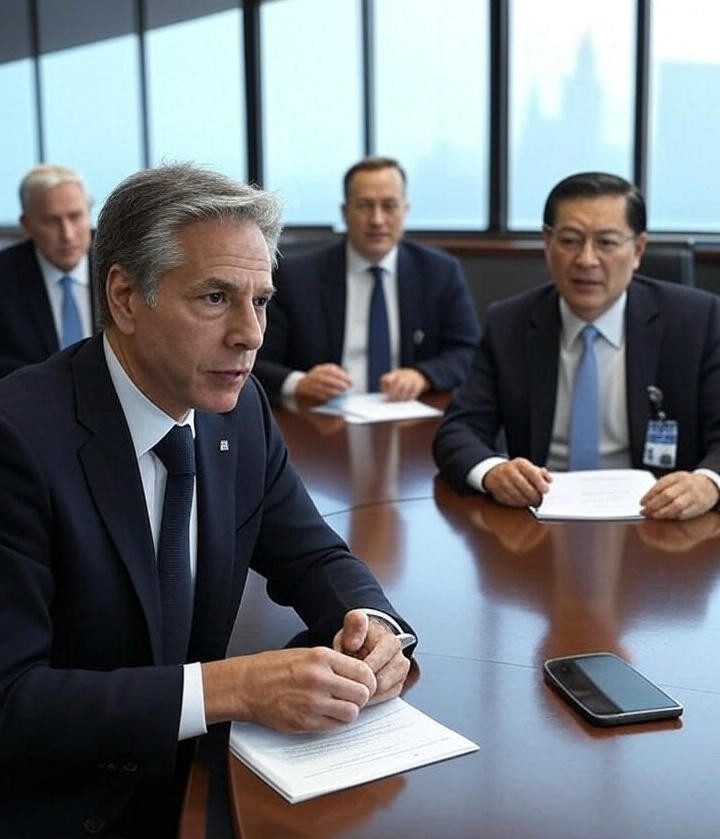High level trade talks between the United States and China began today in London marking a key step in rebuilding economic ties between the world’s two largest economies. The discussions come shortly after a phone call between former President Donald Trump and Chinese President Xi Jinping which helped renew diplomatic momentum.
At the center of these talks are two critical topics: rare earth minerals access and technology exports. With global supply chains under pressure and geopolitical tensions rising both nations are hoping to find common ground though major challenges remain.

Who Are the Key Players?
This round of negotiations involves important figures from both governments:
- Scott Bessent, US Treasury Secretary
- Howard Lutnick, US Commerce Secretary
- He Lifeng, Chinese Vice Premier
These leaders have significant influence in shaping economic and trade policies. Their presence at the table highlights how important these issues are for both countries.
Why Are Rare Earth Minerals So Important?
Rare earth minerals are essential materials used in high tech devices. From smartphones and electric vehicles to military equipment and wind turbines rare earths play a key role in modern industries. China currently controls more than 60% of global production of these minerals.
The U.S. wants to secure stable and affordable access to rare earths. This would reduce America’s dependence on China and strengthen its technological and defense industries. In return China is seeking reliable export markets and looser restrictions on tech exports from the U.S.
What Are the Challenges?
The talks are not easy. Both countries have competing goals and long standing tensions:
- The U.S. has imposed export controls on Chinese tech companies especially in the semiconductor sector.
- China has responded with its own restrictions particularly on rare earth minerals.
- National security concerns from both sides make negotiations harder.
These barriers have hurt businesses and slowed global innovation. American firms struggle to get the materials they need while Chinese firms face bans from U.S. technology and software.
Trump–Xi Phone Call: What Was Discussed?
Just days before the London talks Donald Trump and Xi Jinping had a phone call that helped cool tensions. While full details are not public reports suggest the two leaders discussed:
- Rebuilding trust between the two nations
- Avoiding a tech cold war
- Finding mutual ground on rare earth supply chains
- Possibly restarting certain trade agreements from earlier years
The call provided a more positive tone for the current trade talks though the situation remains complex.
Global Impact of the Trade Talks
These talks don’t just affect the U.S. and China—they have global consequences. Many other countries rely on rare earth exports from China or technology components from the U.S. If these two powers can create a stable trade framework it could lead to:
- Lower prices for electronics and green energy tech
- Reduced supply chain disruptions
- Increased investment confidence in emerging markets
On the other hand if talks fail the world could face more economic uncertainty and rising costs for essential goods.
A Step Toward Cooperation?
Despite the challenges there are signs of mutual interest:
- Both countries are dealing with economic slowdowns at home and want to boost trade.
- American and Chinese businesses have called for better relations and clearer rules.
- The global economy needs stable partnerships between major economies.
If the talks in London lead to even small agreements—like easing certain export controls or allowing joint ventures—it could lay the foundation for larger trade deals in the future.
How Does This Affect India and Other Nations?
India, Japan and many European countries are closely watching these discussions. Here’s why:
- India is building its own rare earth supply chain to reduce reliance on China.
- Japanese firms rely on U.S.-China trade stability to manufacture electronics and vehicles.
- European tech companies want clearer rules to avoid getting caught between U.S. and Chinese policies.
If the U.S. and China make progress it could ease pressure on other economies and encourage partnerships in the Indo Pacific region.
What Comes Next?
The talks are expected to last several days and while no major agreement is guaranteed diplomats are hopeful. Key next steps could include:
- Drafting a new rare earth export agreement
- Setting up a working group to handle tech trade issues
- Announcing joint investments in clean energy or AI research
The outcomes of this meeting will be watched by markets, governments and investors around the world.
Conclusion
The US–China Trade Talks in London represent an important opportunity to reshape economic relations in a changing world. As rare earth minerals and tech exports become more vital to national security and industrial growth both nations must find a way to balance competition with cooperation.
While there is no easy fix today’s discussions mark a hopeful step forward. If managed well these negotiations could help prevent further trade wars restore business confidence and lay the groundwork for a more stable global economy.
